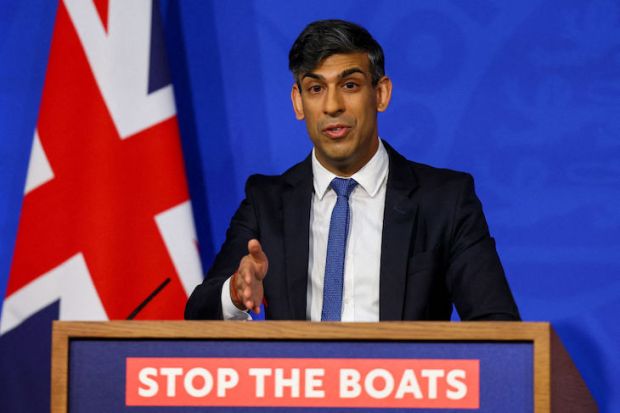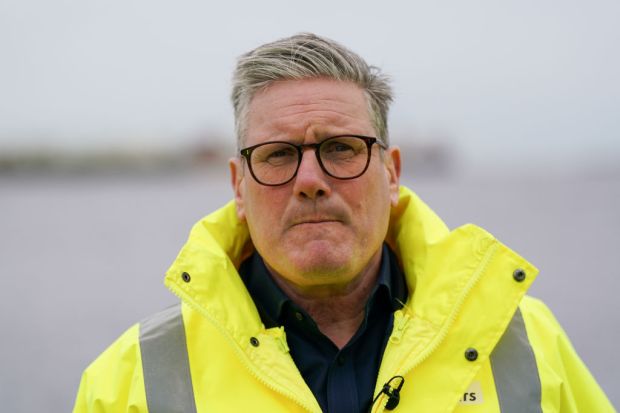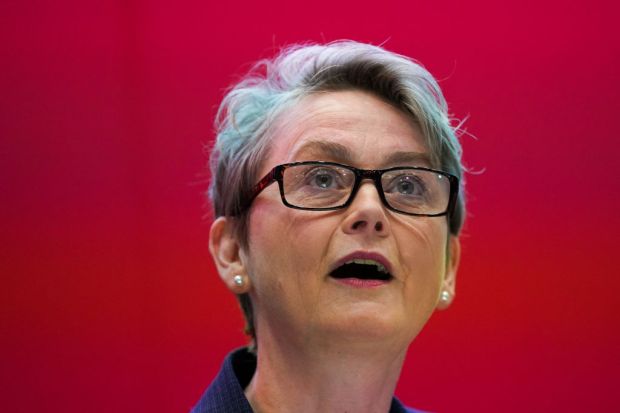It is a notable feather in Nigel Farage’s cap that his new evening show on GB News has already become essential viewing for Tory high-ups.
Last week brought a series of reports by well-connected commentators suggesting that Boris Johnson was worried about Farage highlighting the government’s chaotic failure to stem the cross-Channel flow of migrant boats. The issue has suddenly shot up the list of issues mentioned by Tory voters, with new polling from Redfield & Wilton Strategies now identifying immigration as their top concern.
This week the former Ukip leader has touched another nerve with some Tory MPs by wondering aloud whether their party’s green obsession is reaching a pitch that is going to put off many of its core voters.
‘I begin to think that Number 10 has been completely overtaken by a certain type of Green,’ said Farage. ‘I call them Richmond Greens. They live in £2million houses. They’re not really bothered about the fact that domestic bills are going up.’
When the comments were put out on the GB News twitter feed they were promptly retweeted by the ‘red wall’ Conservative MP Scott Benton, whose Blackpool South constituency is a long way from leafy Richmond-upon-Thames (where in reality one would need closer to £4million than £2million to buy a show-stopping home).
Mr Benton is unlikely to be alone among the new breed of Conservative MPs who are finely attuned to the outlook of blue-collar Britain in thinking that Farage is onto something.
While the peg for the Farage sortie was the rumpus over the advice of Allegra Stratton, the Government’s COP26 spokeswoman, that people should not rinse their dishes before putting them in the dishwasher, his singling out of Richmond suggested he believes that two other figures are at the heart of the Tory eco-push.
First there is Zac Goldsmith, formerly the MP for Richmond Park and now an environment minister sitting in the Lords. Then there is Carrie Johnson, who helped him on his London mayoral campaign in 2016 and who will always struggle to shake off the nickname given to her by Dominic Cummings and Lee Cain: ‘Princess Nut Nut’.
And when someone with antennae as sharp as Farage’s picks up distress signals from Middle England, the Tory high command would be wise to ask itself whether it has a problem. The hastening end of petrol cars and plans to rip out gas boilers from domestic properties were two specific aspects he singled out for discussion on his programme. And his key question was how much it was all going to cost.
Those who have been around the political block a time or two may find themselves drawing parallels between the summer of 2021 and the summer of 2007, the last time the Tories were pushing the green agenda this hard.
Back then it almost brought political disaster. Gordon Brown was enjoying a honeymoon with voters as the new PM, especially regarding his handling of the summer floods. David Cameron, by contrast, had gone to Rwanda to knit yurts (or something similar) even as parts of his own constituency were under water.
In the very same week that Brown invited Margaret Thatcher to tea at No. 10, the Conservatives produced the Gummer-Goldsmith quality of life report, ‘Blueprint for a Green Economy’.
After several high-minded passages that bemoaned Britain’s fixation with increasing its per capita GDP (and remember that both the authors were multi-millionaires), the report put forward the following immortal sentence: ‘In other words: beyond a certain point – a point which the UK reached some time ago – ever-increasing material gain can become not a gift but a burden.’
So as Brown was pondering calling a snap election and busily wooing Thatcherite Tories, the Conservatives were in return making their main economic attack line against Labour that it had made the country too well off.
Fortunately for the blue team, the hard-boiled and later disgraced Fleet Street hack Andy Coulson had just arrived to take charge of their media operation and he immediately moved to shut down this idiocy from the felt-loafered tendency. George Osborne spoke out about the dangers of ‘uber-modernisation’ in the party. Shortly afterwards Osborne unveiled a pledge for a massive uplift in the inheritance tax threshold, which was greeted with joy by homeowners and powered the Tory poll rating upwards. Brown then bottled the election and disaster was averted.
Some 14 years on there is no doubt that ecological concerns have risen-up most people’s agendas. Many more of us see global warming as a serious danger and are prepared to make some sacrifices to help save the planet. But the Conservatives still need to be aware that, as RA Butler once put it, politics is the ‘art of the possible’.
The posh eco-fundamentalists within Tory circles are fabulously well-connected and always adept at climbing the party hierarchy. Hardnosed pragmatists drawn from the lower middle-classes are sometimes in shorter supply at the most rarefied levels of Tory administrations.
Yet the events of that dangerous summer of 2007 remind us that they are just as important to the party’s core mission of holding power. The Conservatives could do with getting someone in who knows how to fend off Farage.
<//>
Got something to add? Join the discussion and comment below.
Get 10 issues for just $10
Subscribe to The Spectator Australia today for the next 10 magazine issues, plus full online access, for just $10.



















Comments
Don't miss out
Join the conversation with other Spectator Australia readers. Subscribe to leave a comment.
SUBSCRIBEAlready a subscriber? Log in